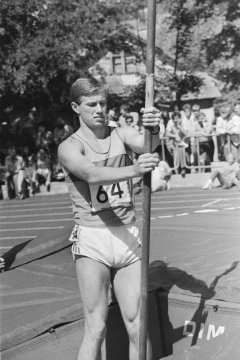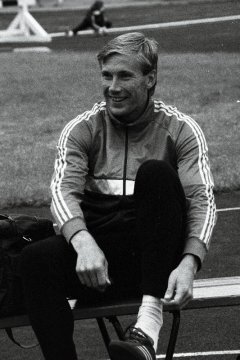Valter Külvet: The Unfinished Decathlon (0)

Valter Külvet was born on February 19, 1964, in Õisu, a small town in southern Estonia. From an early age, it was clear he was something special. Tall, strong, and fiercely determined, he rose through the ranks of athletics with astonishing speed, drawn to the most demanding event of them all—the decathlon.
At just 17 years old, Külvet stunned the athletics world by scoring over 8200 points, setting a world junior record in 1981. His blend of explosive power and technical precision made him one of the brightest talents in the Soviet Union’s sporting system. By 1983, he was crowned European Junior Champion, and a few years later, he stood on the podium at the Universiade in Kobe with a silver medal draped around his neck.
But behind the medals and records was a body often pushed to the brink. Injuries plagued his career at its peak. He qualified for the 1988 Seoul Olympics but was forced to withdraw mid-competition. Despite leading in talent and promise, his international breakthroughs were repeatedly derailed by untimely setbacks.

Still, Külvet never gave up. He reclaimed national titles in Estonia in the 1990s and remained a respected figure in athletics, known for his quiet resolve and resilience. After retiring from competition, he turned his focus to business, working in timber exports in post-Soviet Estonia.
Tragically, his life came to a violent and mysterious end on July 2, 1998. He was just 34 years old when he was found murdered near Mäksa, leaving behind unanswered questions and a legacy of talent that never reached its full bloom.
Each year, young Estonian athletes gather in Abja-Paluoja to compete in his memory - a tribute to a man whose life and career, though cut short, continue to inspire.